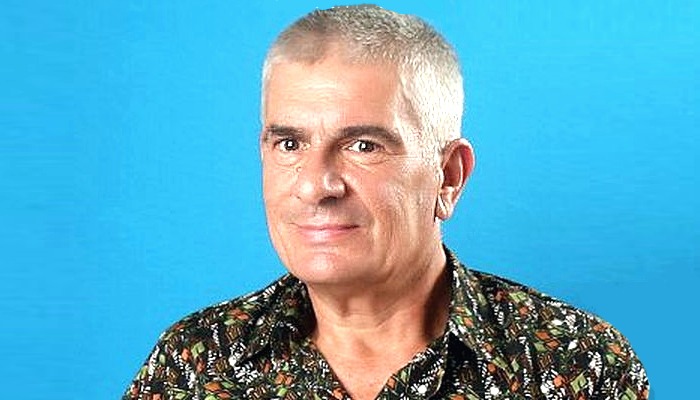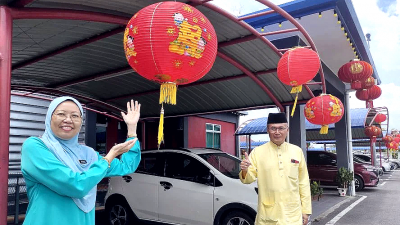
Malaysia has witnessed unstable government since GE14 in 2018, with three prime ministers in the same number of years.
There is continual flux and conflict between the governing parties, which is distracting focus from the major issues at hand, with Malaysia facing high inflation with a possible recession around the corner.
The Yang di-Pertuan Agong, or King had to intervene two times to enable the selection of a new prime minister.
Ismail Sabri Yaakob’s position as prime minister is continually under threat from the leadership of his own party.
The coming GE15 will now likely return the political parties in numbers where no one party will be able to govern without having to constitute another unstable coalition.
The most stabilizing aspect of Malaysian politics today is the tacit support Pakatan Harapan has been giving the Ismail Sabri government over the last year plus.
The Malaysian political scene has been dominated by Malay-centric parties that have been continually fighting among one another.
For the sake of good governance, there needs to be a solution, a solution with optimism that will bring back a true sense of power sharing between the various groupings across the country.
The solution may actually be in the Malaysia Agreement 1963 (MA63).
The Special Council on the MA63 just endorsed the restoration of a 35% ratio of the overall number of parliamentary seats to Sabah and Sarawak. Such a restoration would require any peninsula-based parties to acquire strong support of Sabah- and Sarawak-based parties to govern.
This would require the current set of Malay-centric parties to enlist a more diverse range of political thinking inside the federal cabinet and government.
Even though the restoration of 35% parliamentary seats to Sabah and Sarawak is agreed upon, there are many bureaucratic steps ahead that make the reality of this uncertain.
Ideally, this could bring a federal government that governs from a true national viewpoint rather than the Malay-centric tilt the nation has been witnessing over the last few years.
However, although the restoration of 35% parliamentary seats to Sabah and Sarawak is agreed upon, there are many bureaucratic steps ahead that make the reality of this uncertain.
Back in 1963 when Malaysia was formed, Sabah had 16 seats, Sarawak 24 seats, Malaya 104 seats, and Singapore 15 seats.
The Minister in the Prime Minister’s Department (Sabah and Sarawak Affairs) Maximus Ongkili argued that the seats from Singapore when it left the federation back in 1965, should have been reallocated to Sabah and Sarawak to maintain the 65:35 ratio between Malaya and the other parties.
Today, Malaya has 166 or 75% of the seats, and Sabah and Sarawak have 56 or 25% of total seats within the Malaysian Parliament.
This proposal is welcomed by a number of NGOs in Sabah and Sarawak. They point to Article 46 of the Federal Constitution regarding the parliamentary seat allocation to Sabah and Sarawak, which should be given 34.6% of the seats. This was also in the MA63 agreement which at the time included Singapore.
The 12 NGOs are Borneo’s Plight in Malaysia Foundation, Gindol Initiative for Civil Society Borneo, Sabah Sarawak Rights Australia New Zealand, Sarawak Association for People’s Aspiration, Republic of Sabah North Borneo, Persatuan Kebudayaan Kebajikan Ekonomi Mamasok Sabah, Pertubuhan Kebudayaan Rumpun Dayak Sabah, Persatuan Prihatin Muallaf Sabah, Angkatan Perubahan Sabah (APS), Dayak National Congress, Society for Rights of Indigenous People, and Dayak Think Tank Association Sarawak.
In a joint statement, the NGOs stated that if the Ismail Sabri government ignored this claim, they would be forced to seek alternative options such as independence from the Federation.
However, at this stage the movement for independence is not a mass movement. The idea of independence is currently centered around the urban professionals and middle class.
However, there is some merit in the proposal in terms of promoting a much more diverse central government where Sabah and Sarawak in theory would carry much more weight.
The counter argument for this is that there are already representatives from Sabah and Sarawak within the federal cabinet that has made little difference to the dominance of Malay-centric parties.
Political analyst and academic director of the Asia Institute, University of Tasmania James Chin said such a change in the ratio of seats would have major implications to the Malay establishment. Consequently, he doesn’t believe Maximus Ongkili would be able to achieve this change in the parliamentary seat ratio between Malaya and Borneo either before or after GE15.
Restoring the 35% ratio of parliamentary seats would certainly put some limits on the influence of the Ketuanan Melayu ideology upon government policy.
It would even weaken any potential groundswell for independence in the future.
Adhering to the MA63 will greatly assist in creating a stable government in the future.
It may also be one of the most practical ways of returning Malaysia back to the path of becoming a Malaysian Malaysia.
ADVERTISEMENT
ADVERTISEMENT








































